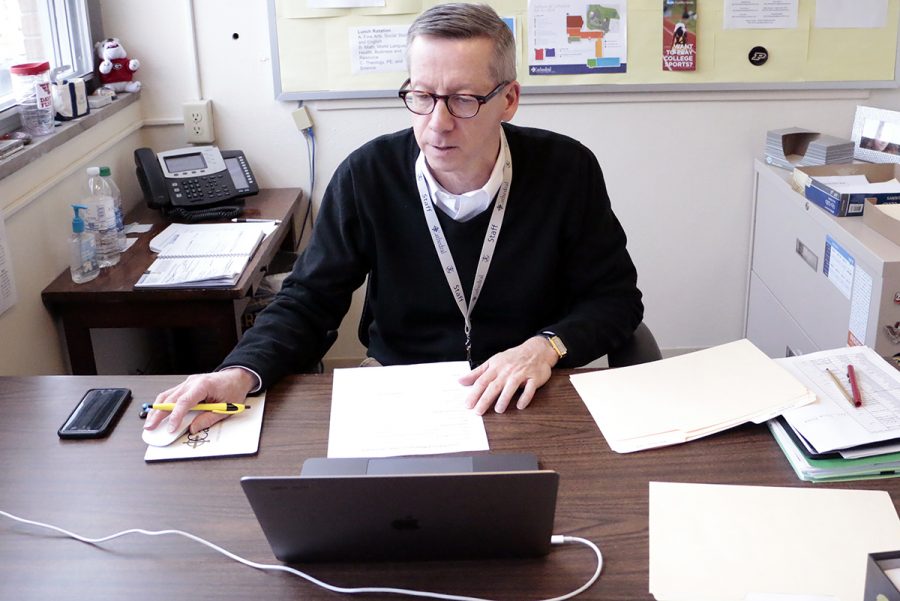Counselor weighs in on college admissions
Pressure to achieve doesn’t warrant cheating
Mr. Terry Knaus brings the perspective of both a former college admissions administrator and his current role as a college counselor to his position.
An article in The New York Times last month detailed the story of how a high school senior had written a heart-felt essay about his mother’s death and submitted the essay as part of his college application.
The college admissions officer who read the essay was so moved he decided to call the high school senior, speak to him about both his acceptance and his moving essay. However, when the counselor made that call, he was in for a surprise.
The supposedly dead mother answered the phone.
While issues of authenticity are far from as blatant as this, many prospective college applicants will feel a need to get ahead of the curve, and it’s not early for current juniors to start thinking about the process.
Mr. Terry Knaus, a college counselor and former a former administrator in Indiana University admissions office in Bloomington, said that he has not witnessed any sort of issue regarding the authenticity of an essay at this school, he said that he has read about them.
He said, “Unfortunately because of the pressure some students feel to get into their ideal college, they’re willing to fabricate information for admission to that particular school.”
Knaus explained that “in our current culture and in our media, it’s often portrayed that only particular or specific schools are the best and students and their parents get consumed with this information.”
Ms. Laurie O’Brien, an English teacher who has helped incoming seniors write their college essays during the school’s annual bootcamp, said she shares this sentiment and encourages students to demonstrate their best self, not necessarily with a gripping and emotional story, but also to keep in mind that the simple things are still essential for developing an idea of the potential student.
“I think the pressure comes from parents and themselves. I think it’s more self-imposed,” she said.
O’Brien said, “I think you’re more likely to shine in an essay when you write about something that’s really true. Students sometimes don’t realize you don’t have to win the state championship, you could be playing euchre with your grandma. I think it can be the ordinary things can be special.”
O’Brien said colleges want to get to know the potential students, and rather than stacking on mountains of activities and extracurriculars, that applicants could write about experiences that demonstrate an aspect of their personality they want to show off.
O’Brien and Knaus said to keep in mind that a certain college won’t make you automatically successful.
Knaus said setting up meetings with college counselors is an important first step in dealing with the tremendous amount of pressure students can feel. “We’re here to help,” said Knaus.
After determining a student’s strengths and interests, cross-examining many different schools will help broaden a student’s possibilities to limit feelings of a need to be accepted into a short list of top level schools.
Knaus said there have been a number of times that he’s been working with students who only wanted to consider one or two schools. But after doing research, they realized how many other colleges and universities there are that fit the criteria they want, like potential scholarship opportunities.
As for authenticity in the application process, Knaus recommended involvement in areas of passion. If students only join a club or activity for the sole purpose of buffing a college resume, it will come through to the admissions committee.
Sources suggested that parents should have a very limited role in crafting the essay or the application.
Quality over quantity is a major factor to consider when attempting to craft oneself, and Knaus said that going deep in a few things like service work, fine arts, or even a part-time job really shines through.

Andrew de las Alas is a senior and reporter for the Megaphone. He runs varsity cross-country, is co-captain of the speech and debate team and co-president...







